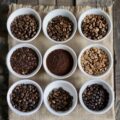The Lifecycle of Your Favorite Brew: Understanding Coffee Freshness
Coffee lovers, unite! There’s nothing quite like that first sip of a freshly brewed cup to start your day on the right note. But have you ever wondered about the shelf life of those precious beans or grounds sitting in your pantry? Let’s explore the fascinating world of coffee freshness and learn how to make the most of every aromatic cup.
The Truth About Coffee Expiration
Here’s some good news for coffee enthusiasts: technically, coffee doesn’t “go bad” in the way that milk or fresh produce does. It won’t make you sick if consumed past its prime. However, the quality and flavor of your coffee can certainly degrade over time.
Coffee is at its peak freshness shortly after roasting. From that point on, it’s a gradual journey of flavor evolution. While some changes can be subtle, others might leave you wondering if you’re drinking the same coffee you fell in love with weeks ago.
Factors Affecting Coffee Freshness
Several elements play a role in how quickly your coffee loses its optimal flavor:
- Oxygen exposure: Air is coffee’s nemesis, causing oxidation that breaks down flavors.
- Moisture: Humidity can lead to mold growth and flavor deterioration.
- Light: UV rays can degrade coffee oils, affecting taste.
- Heat: Warm temperatures speed up the breakdown of flavor compounds.
Understanding these factors can help you make informed decisions about coffee storage and consumption, ensuring a more enjoyable brewing experience.
Signs Your Coffee May Be Past Its Prime
While coffee doesn’t spoil in the traditional sense, there are telltale signs that it’s no longer at its best:
- Loss of aroma: Fresh coffee has a rich, enticing smell. If the scent is weak or absent, it’s a sign of aging.
- Flat taste: If your brew lacks depth or complexity, the beans might be past their prime.
- Visible oil on whole beans: While some oils are normal, excessive oiliness can indicate over-exposure to air.
- Clumping in ground coffee: This could suggest moisture exposure.
Remember, these signs don’t mean your coffee is unsafe to drink – just that it might not provide the optimal flavor experience you’re seeking.
Maximizing Coffee Freshness: Storage Tips
To keep your coffee tasting its best for as long as possible, consider these storage recommendations:
- Store in an airtight container: This minimizes oxygen exposure.
- Keep in a cool, dark place: Avoid direct sunlight and heat sources.
- Buy whole beans: Grind only what you need for immediate use.
- Avoid the refrigerator or freezer: Temperature fluctuations can create condensation, affecting flavor.
By following these simple guidelines, you can significantly extend the life of your coffee and ensure each cup is as delightful as possible.
The Joy of Fresh Coffee: A Mindful Approach
While it’s important to understand coffee freshness, it’s equally vital to approach our coffee consumption with mindfulness and appreciation. Each cup is an opportunity to pause, reflect, and savor the moment. Whether you’re enjoying a solo morning brew or sharing coffee with friends, take time to appreciate the aromas, flavors, and the simple pleasure of the experience.
Remember, coffee is more than just a beverage – it’s a connector, a comforter, and for many, a daily ritual that brings joy and energy to our lives. By caring for our coffee properly, we’re not just preserving flavor; we’re enhancing our daily moments of peace and pleasure.
Frequently Asked Questions About Coffee Freshness
1. How long does coffee stay fresh after roasting?
Whole bean coffee is typically at its peak flavor within 2-4 weeks after roasting. Ground coffee starts losing its freshness more quickly, usually within 1-2 weeks after grinding.
2. Can I drink coffee that’s past its “best by” date?
Yes, you can safely drink coffee past its “best by” date. This date is more about optimal flavor than safety. The coffee may not taste as good, but it won’t make you ill.
3. Is it better to buy whole beans or ground coffee?
Whole beans generally stay fresh longer than pre-ground coffee. If possible, buy whole beans and grind them just before brewing for the best flavor.
4. How can I tell if my coffee has gone bad?
Look for signs like a lack of aroma, flat taste, or visible mold (in rare cases of moisture exposure). If the coffee smells and looks fine, it’s usually safe to drink, though it may not taste its best.
5. Can I freeze coffee to keep it fresh longer?
While freezing can extend coffee’s shelf life, it’s not generally recommended due to the risk of moisture and odor absorption. If you must freeze, use an airtight container and thaw the entire amount at once to avoid repeated temperature changes.
In conclusion, while coffee doesn’t “go bad” in the traditional sense, its quality can certainly decline over time. By understanding the factors that affect coffee freshness and following proper storage techniques, you can ensure that every cup you brew is as delicious and satisfying as possible. Remember, the best coffee is not just about freshness – it’s about the joy and mindfulness we bring to each sip. So brew up a cup, savor the aroma, and enjoy the simple pleasure of a well-cared-for coffee experience.









